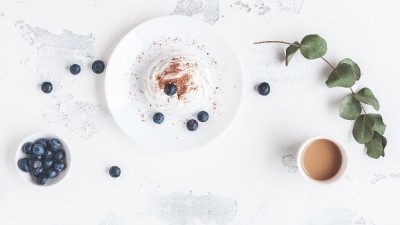Resveratrol derivative may have potential as anti-allergy cosmetic ingredient: New study

RSV is a naturally occurring polyphenol found in peanuts, blueberries, cranberries, grape skin and juice and red wine. Thanks to its protective effects against inflammation and UV radiation, it is already widely used in skincare products but its hydrophobicity prevents it from being incorporated in certain cosmetic formulations.
However, a derivative of RSV called resveratrol glucoside sulphate (RSV-GS) — the most prevalent form of RSV found in nature — may be able to change this. Sulphate reactions influence the metabolism of resveratrol, facilitating water solubility and thereby overcoming this obstacle in highly hydrophobic bioactive compounds like RSV. This molecular modification produces RSV-GS, which is hydrophilic and exhibits similar bioactivity levels as RSV.
With this in mind, researchers at the University of Porto, University of Coimbra and Interdisciplinar Centre of Marine and Environmental Research in Portugal conducted an in vitro study to determine RSV-GS’ skin sensitization and anti-allergy potential.
Mitigating skin sensitisation and allergic reactions
For the purposes of the study, the researchers assessed the safety profiles of both RSV and RSV-GS and compared their potential for skin sensitisation and anti-allergy activity. They did the latter using the extreme skin allergen 1-fluoro-2,4-dinitrobenzene (DNFB), which causes allergic reactions and dermatitis by skin contact or inhalation.
They subsequently found that RSV-GS showed the potential to mitigate allergen-induced skin sensitization and allergic contact dermatitis, though these effects of RSV-GS were not significantly different from those of RSV. However, the molecular modification of RSV to RSV-GS was found to have an improved safety profile compared to that of RSV.
The researchers stated: “These findings demonstrate that none of the evaluated compounds caused skin sensitisation, supporting their safety profile for use in cosmetic and skincare applications.” They added that RSV-GS’ heightened safety profile — even in the presence of the allergen DNFB — “could extrapolate to the future” to have a similar effect on other allergy-causing substances, “thus eliminating the harmful effects allergens could have after contact with skin”.
First-time discoveries and future studies
The researchers noted that the study reported, for the first time, the low skin sensitisation potential and anti-allergic effects of RSV-GS, showing that sulphonation of RSV, as well as “all the hydroxyl groups, further supported its application in cosmetic formulations.
They also acknowledged the evaluation of the safety profile of new derivatives as “mandatory”, adding that this highlighted the need to combine a set of properties. Moreover, they noted that the identification of new molecules that could prevent the development of skin sensitisation was “of utmost importance” as there were over 4,000 identified allergens in “diverse products of daily use”.
They concluded by saying that further studies should be conducted to explore the ex vivo and in vivo efficacy and action of hydrolytic skin enzymes that enacted the metabolism of “RSV-GS into the bioactive RSV compound”.
Source: Molecules
https://doi.org/10.3390/molecules28073158
“A Hydrophilic Sulfated Resveratrol Derivative for Topical Application: Sensitization and Anti-Allergic Potential”
Authors: Ana Jesus, et al.




![Chinese study highlights mental health challenges in atopic dermatitis, emphasising holistic patient care. [Getty Images]](https://www.cosmeticsdesign-europe.com/var/wrbm_gb_food_pharma/storage/images/_aliases/wrbm_tiny/publications/cosmetics/cosmeticsdesign-asia.com/headlines/formulation-science/chinese-research-linking-atopic-dermatitis-to-mental-health-underscores-need-for-holistic-care/17040623-1-eng-GB/Chinese-research-linking-atopic-dermatitis-to-mental-health-underscores-need-for-holistic-care.jpg)





